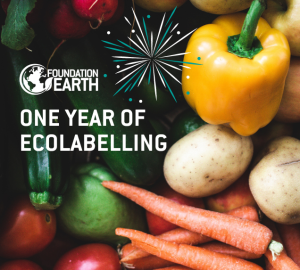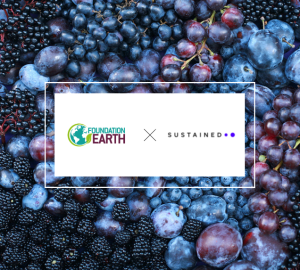This article was written by Donal Quinn, Founder of ENSO.
In today’s world, sustainability has evolved from a trendy buzzword into a guiding principle for individuals and businesses alike. Embracing sustainable best practices not only benefits the environment and communities around the world, but also yields advantages for businesses. In this blog, we will explore why adopting sustainable practices is the right decision for businesses, focusing on the food and drink industry as an example.
- Enhance your business’s reputation and attract new customers
Embracing sustainability offers a valuable opportunity to build a positive brand image. For example, by prioritising sustainable farming and production methods, businesses can attract environmentally conscious consumers who actively seek out products and services that align with their values.
Clear and transparent communication is vital for businesses to reduce the risk of reputational damage and avoid greenwashing claims. Making this information readily available on your website and other touchpoints for customers to access is increasingly essential. Today’s time-constrained consumers lack the luxury of thoroughly researching every company they purchase from. Therefore, it is crucial for brands to simplify and streamline information delivery, making it effortless for consumers to access and understand.
Additionally, food ecolabelling provides businesses with the chance to include clear and transparent information on their products about the environmental impact. This empowers consumers to make informed choices and support businesses that share their sustainability values and goals.
- Cost savings through resource efficiency
Deploying sustainable practices can lead to significant cost savings by reducing energy and resource consumption. By developing a comprehensive sustainability strategy and tracking your actions, your business can identify areas where operating costs can be reduced, ultimately leading to increased profitability. Conducting Life Cycle Assessments (LCAs) and utilising food environmental scoring are effective ways to gain tangible insights into your current production and value chains.
By monitoring your progress over time and utilising scoring systems, businesses can also identify areas for improvement. This data-driven approach to sustainability helps optimise operations, reduce waste, and minimise your business’s environmental footprint, resulting in long-term cost savings.
- Drive innovation and product development
Going sustainable not only benefits the environment, but also drives innovation and encourages the development of new, eco-friendly products and services. When businesses adopt sustainable practices, they are incentivised to invest in research and development to create sustainable packaging, ingredients and innovative production methods.
To effectively implement sustainable practices, it is crucial to have a clear sustainability strategy in place. This strategy should outline your goals and provide a roadmap for how you will achieve them. By also incorporating sustainability tracking mechanisms, such as environmental scoring, you can measure your progress and identify opportunities for innovation and improvement.
- Build trustworthy relationships with stakeholders
Sustainable businesses are more likely to build long-term relationships with suppliers who share similar values. Sustainability is not a job for one person; it requires collaboration and engagement with all stakeholders who are affected by your business and its activities. By developing a clear set of strategic actions and engaging with your stakeholders, your business will be able to identify any present challenges and new opportunities to improve your sustainability efforts.
Implementing sustainability tracking mechanisms throughout your supply chain, such as food environmental scoring, can help you identify and collaborate with suppliers that adhere to sustainable practices. This promotes a mutually beneficial and trustworthy partnership, ensuring the integrity of sustainability goals throughout the value chain.
- Gain a competitive advantage
In a crowded market, embracing sustainability can help businesses stand out from their competitors. To build a successful brand, it is essential to understand and communicate your brand’s value proposition. While sustainable practices alone may not be the sole reason for consumers to make a purchase, purpose-led brands have a significant advantage. To capitalise on it, they must excel in their offerings and be exceptional at what they do. By combining a remarkable product with a compelling story and a robust sustainability strategy, brands can forge strong connections with consumers.
Food ecolabelling also provides a clear competitive edge by showcasing a business’s commitment to sustainability. This not only attracts environmentally conscious consumers but also boosts market share, as more and more individuals actively seek out more sustainable options. By differentiating yourself as a sustainable business and tracking your sustainability actions, you can position yourself as a leader in the industry and attract a loyal customer base.
- Increase customer loyalty
Consumer preferences have shifted towards supporting businesses that prioritise sustainability. By adopting sustainable practices, businesses foster trust and loyalty among their customer base. However, many studies on consumer behaviour reveal that a significant portion of consumers view eco-claims as mere marketing tactics. Therefore, businesses must embrace sustainability – not just for promotional purposes but because it is the right thing to do.
To combat greenwashing and demonstrate sincerity, companies need to make public declarations about their commitment to sustainability. By incorporating sustainability tracking processes and regularly sharing progress updates with your customers, you can showcase your ongoing efforts to drive meaningful change.
Ensuring your website includes clear and transparent information on your efforts is essential in this process, enabling consumers to easily identify and choose products that align with their values. As a result, businesses that prioritise sustainability and track their actions can cultivate long-term relationships with their customers, leading to increased loyalty and advocacy.
Embracing sustainable best practices is not only the right decision for the environment but also for businesses themselves. By developing a comprehensive sustainability strategy, tracking your actions, and communicating your progress to build a brighter future for your business and the world, your business can thrive in a rapidly changing marketplace. So, take the leap and embrace sustainability as a core pillar of your business strategy.
ABOUT DONAL QUINN
Donal is the Founder of ENSO, an online platform that empowers businesses to create and communicate their own sustainability strategies. With a background in marketing and managing sustainability initiatives, Donal witnessed a knowledge gap between business practices and sustainability best practices. To address this, he developed the ENSO platform, enabling businesses to connect with customers, increase revenues, and have a positive impact on the environment and society. Donal is dedicated to driving sustainable change and inspiring businesses to integrate sustainability into their operations.
To learn more about ENSO visit www.ensoinitiatives.com








